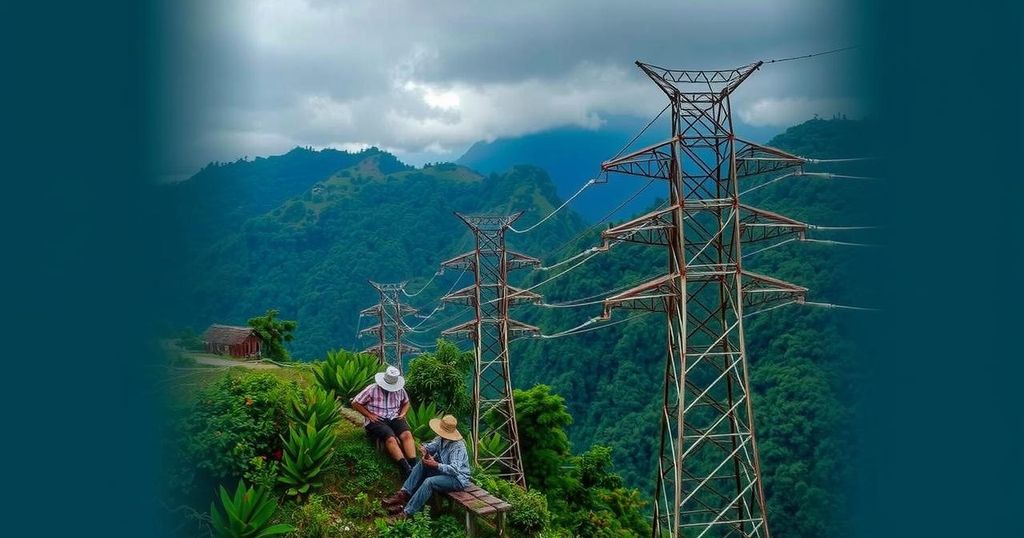Ecuador is experiencing severe power outages of up to 14 hours daily since mid-September 2024, stemming from climate-induced droughts and alleged governmental mismanagement. Citizens face rising costs, appliance damages, and diminished economic activity in small businesses amidst the crises. The current administration is under scrutiny for inadequate investment in energy infrastructure, despite efforts to address the situation through new energy initiatives.
Ecuador is facing an unprecedented energy crisis, with power outages reaching up to 14 hours daily since mid-September 2024. These outages mirror a systemic failure to adequately manage the country’s electricity supply, exacerbated by climate change and alleged corruption in energy management. The Ecuadorian constitution mandates that the state guarantee electricity as a public service, crucial for the daily lives of its 17 million citizens. The impact of the blackouts is pervasive, leading not only to chaos on the streets during outages but also financial burdens for citizens and small businesses alike, resulting from irreparable damage to appliances and income losses. As the government grapples with accusations of negligence, the former Minister of Energy, Andrea Arrobo, argues she inherited a crisis aftermath of years of underinvestment from previous administrations. Following a significant increase in blackouts, President Daniel Noboa’s administration has shifted blame to prior governmental actions, asserting that the energy crisis is derived from external factors such as unprecedented droughts affecting hydroelectric production, which is the primary source of the country’s electricity. Yet experts suggest that the actual problem lies in a failure to diversify energy sources and invest in renewable options. Significant concern revolves around a controversial contract for a floating power plant reportedly signed under dubious circumstances. The government has been accused of influence peddling concerning the contracting of the barge, Emre Be, from the Turkish firm Karpowership. This contractual agreement, although intended to alleviate the energy crisis, raises questions about its feasibility and appropriateness. Amidst the turmoil, President Noboa has finally acknowledged the fundamental issues of insufficient investment in energy infrastructure while proposing a long-term vision that includes nuclear, solar, and continued thermoelectric initiatives. Currently, Ecuadorians continue to endure daily power interruptions, charting a course through a crisis that ostensibly stems from both environmental challenges and historical negligence in energy management practices.
Ecuador’s current energy crisis stems from a combination of climate challenges and governance failures. The country has experienced significant droughts, which severely impact hydroelectric power generation, the backbone of its energy production. Additionally, the previous administrations allegedly neglected investment in essential energy infrastructure, weakening the nation’s capacity to respond to crises effectively. Despite these environmental factors, many experts argue that a lack of strategic diversification in energy sources has exacerbated the situation, limiting the country’s resilience to changing climatic conditions.
In summary, Ecuador’s ongoing energy crisis, underscored by 14-hour blackouts, illustrates the intersection of climate challenges and systemic governmental failures. As citizens grapple with the fallout, including economic hardship and compromised public safety, the urgency for transparent governance and accountable management of energy resources becomes apparent. President Noboa’s acknowledgment of previous administrations’ shortcomings signals a needed shift towards sustainable energy solutions, yet the path forward remains fraught with challenges.
Original Source: globalvoices.org






